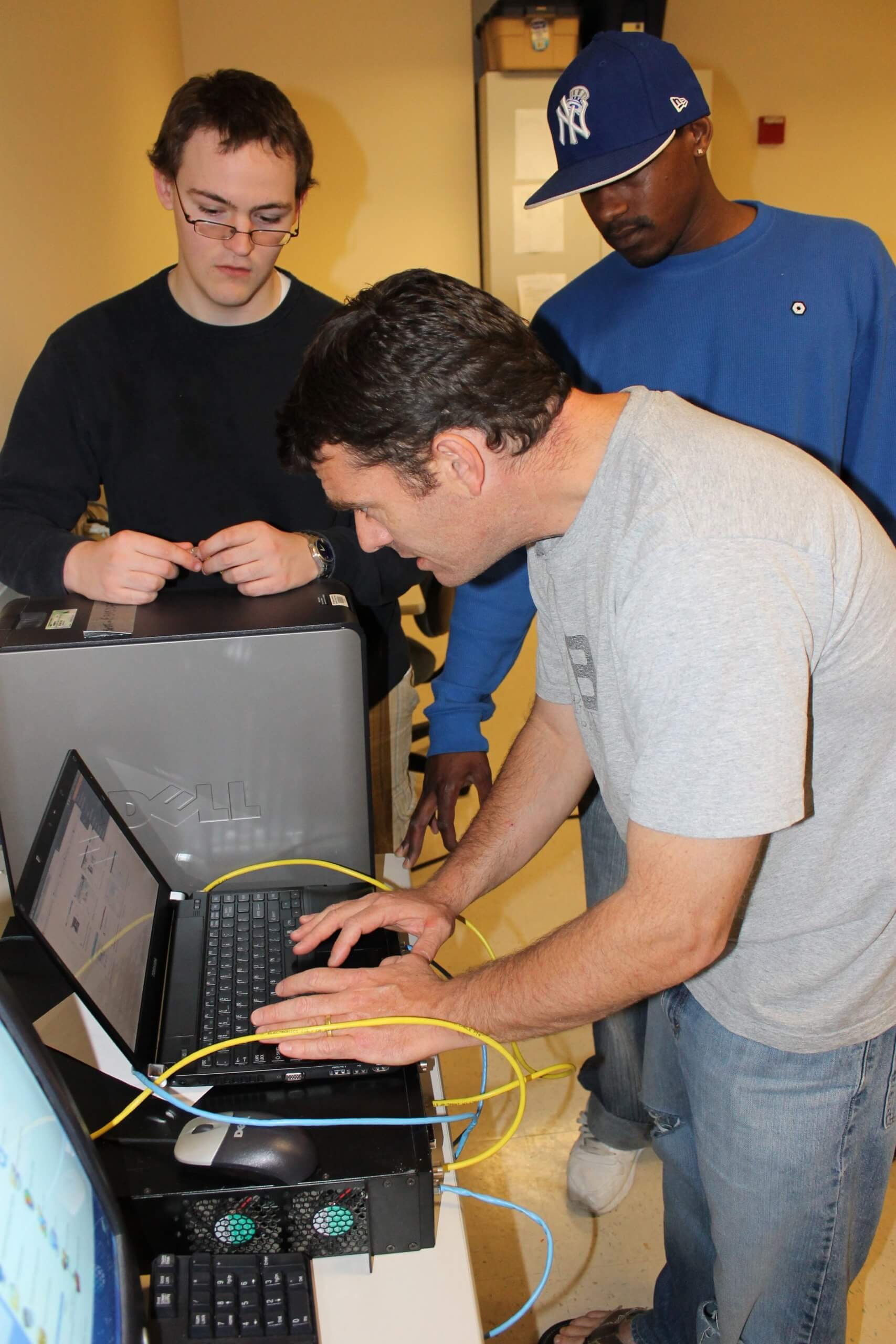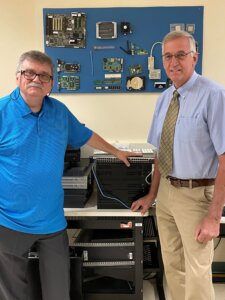Overview
The Department of Information Systems Technology offers coursework in computer hardware repair, computer networking, network security and network management. The demand for IT professionals continues to rise. IT professionals are being sought after with higher salaries as an incentive. Continuing education opportunities are available for IST graduates through current articulation agreements with four-year colleges. Courses will be offered on a rotating semester basis in daytime and evening schedules.
Why Great Bay?
At GBCC’s IST courses students will find small classes with a maximum enrollment of 15 students. This class size is dictated by the Cisco course curriculum with equipment requirements per student. All courseware and reference material is provided online to all students.
Highlight Statistic(s)
GBCC is well located to receive equipment donations from local companies and students benefit from the excess equipment brought to our labs for their use.
These connections with several local companies is also a resource for placing students in internships as well as career opportunities.
Career Options
| Job Title | Average Salary |
| Server Administrator | $90,520 |
| Network Support Specialist | $76,000 |
| Computer Systems Analyst | $102,000 |
| Cyber Security Specialist | $112,000 |
Related Degrees
Accreditation Information
IST Faculty holds and maintains Cisco Instructor Certification.
Additional certifications are required for specific technology courses: FOA – Fiber Optics, VMware, CompTIA Computer A+, Linux and CyberSecurity Certifications.
Faculty Q&A: Meet Kevin Behnke & Mike Harrison
Behnke has worked in the industry as a technical trainer and specialist, support engineer and as a courseware and program developer. Harrison has racked up experience as a computer tech in the U.S. Navy and product engineer at GTE, Wang Labs, Cabletron, and Enterasys. |
Curriculum Outline
The classes and coursework required is as follows:
First Year: Fall Semester
| Course ID | Course | Theory | Lab | Credits |
|---|---|---|---|---|
| ENGL110G / 111G | College Composition I / College Comp I with Lab | 4 | 0/2 | 4/5 |
MATH145G/147G or MATH170G | or | 4 | 0 | 4 5 |
| IST122G | Introduction to Networks | 2 | 2 | 3 |
| IST123G | Switching, Routing, and Wireless Essentials (SRWE) | 2 | 2 | 3 |
| Total Credits | 14-16 | |||
First Year: Spring Semester
| Course ID | Course | Theory | Lab | Credits |
|---|---|---|---|---|
MATH170G
or |
| 4 | 0 | 4 |
| MATH215G, 225G, 210G, 230G, 250G | Finite Mathematics, Probability & Statistics, Pre-Calculus, Calculus I, or Calculus II | 4 | 0 | 4 |
| Science Elective | 4 | 0 | 4 | |
| IST122G | Enterprise, Networking, Security, and Automation | 2 | 2 | 3 |
| ISTXXXG | IST Elective (100 Level) | 2 | 2 | 3 |
| Total Credits | 14 | |||
First Year: Summer Semester
| Course ID | Course | Theory | Lab | Credits |
|---|---|---|---|---|
IST Elective (100 Level)* | 2 | 2 | 3* | |
IST Elective (200 Level)* | 2 | 2 | 3* | |
| Humanities/Fine Arts Elective | 3 | 0 | 3 | |
| Total Credits | 9 | |||
Second Year: Fall Semester
| Course ID | Course | Theory | Lab | Credits |
|---|---|---|---|---|
ENGL215 ENGL214G | or | 3 3 | 0 0 | 3 3 |
| IST / CIS Elective* | 2 | 2 | 3* | |
| IST / CIS Elective | 2 | 2 | 3* | |
| IST / CIS Elective | 2 | 2 | 3* | |
| Social Science Elective | 3-4 | |||
| Total Credits | 15-16 | |||
Second Year: Spring Semester
| Course ID | Course | Theory | Lab | Credits |
|---|---|---|---|---|
| IST / CIS Elective | 3* | |||
| IST / CIS Elective | 3* | |||
| IST / CIS Elective | 3* | |||
| IST / CIS Elective | 3* | |||
| Total Credits | 12 | |||
* At least 18 credits must be at the 200 level for IST Classes
Up to 15 CIS and DGMT credits will be accepted in the IST Program
Total Overall Credits: 64-67
General Education & Core Courses
GENERAL EDUCATION CORE COURSES | ||||
TH | LAB | CR | ||
ENGL110G / 111G | College Composition I / with Lab | 4 | 0/2 | 4/5 |
ENGL214G or (ENGL215G) | Introduction to Creative Nonfiction or (Writing Technical Documents) | 3 (3) | 0 0 | 3 (3) |
MATH145G/147G or MATH170G | Math Elective 1 | 4 | 0 | 4/5 |
MATH170G or 215G, 225G, 210G, 230G, 250G | Math Elective 2 | 4 | 0 | 4 |
Science Elective | 4 | 0 | 4 | |
Social Science Elective | 3 | 0 | 3-4 | |
Foreign Language/Humanities/Fine Arts Elective | 3 | 0 | 3 | |
Total: | 25 | 0 | 25-28 | |
At least 21 credits at the 100 level and at least 18 credits must be at the 200 level. Up to 15 CIS or DGMT credits may be applied at either the 100 or 200 level in fulfillment of IST degree requirements. | ||||
INFORMATION SYSTEM TECHNOLOGY CORE COURSES | ||||
TH | LAB | CR | ||
IST112G | Applied Logic | 2 | 2 | 3 |
IST113G | IT Essentials PC Hardware & Software | 2 | 2 | 3 |
IST122G | Introduction to Networks (ITN) | 2 | 2 | 3 |
IST123G | Switching, Routing, and Wireless Essentials (SRWE) | 2 | 2 | 3 |
IST142G | Virtualization Essentials | 2 | 2 | 3 |
IST150G | Network Operating Systems Fundamentals | 2 | 2 | 3 |
IST161G | Fundamentals of Networking and Security | 2 | 2 | 3 |
IST163G | Legal Issues in Information Security | 3 | 0 | 3 |
IST200G | Communications Electro-optics | 2 | 2 | 3 |
IST212G | Mobile Systems Architecture | 2 | 2 | 3 |
IST221G | Advanced Switching | 2 | 2 | 3 |
IST222G | Enterprise, Networking, Security, and Automation | 2 | 2 | 3 |
IST242G | Advanced Virtualization | 2 | 2 | 3 |
IST245G | Enterprise Data Management | 2 | 2 | 3 |
IST251G | Windows Network Operating Services | 2 | 2 | 3 |
IST253G | Windows Server 2008 Active Directory | 2 | 2 | 3 |
IST262G | Advanced Network Security | 2 | 2 | 3 |
IST263G | Information Assurance/ Information Risk Management | 2 | 2 | 3 |
IST264G | Configuration of Security Appliance | 2 | 2 | 3 |
IST265G | CCNA Cybersecurity Operations | 2 | 2 | 3 |
IST266G | Security+ | 2 | 2 | 3 |
IST275G | Network Protocols & Services | 2 | 2 | 3 |
IST281G | Internship | 1 | 8 | 3 |
Total Degree Credits: | 39 | |||
Program Specific Requirements
Technical Standards
Students who enroll in the program should comprehend the English language, both oral and written, and have sufficient keyboarding skills to produce electronic documents in a timely manner.
They should be able to sit or stand at a desk or workstation and stay on task for extended periods of time.
They should be detail-oriented, able to read small print, and able to perform basic mathematical operations. Successful employees in the field demonstrate the emotional stability required to exercise sound judgment, accept direction and guidance from a supervisor, and establish rapport and maintain sensitive interpersonal relationships with employees, customers, and clients.
Health and Internship Considerations
The College must ensure that stakeholders at internship and service learning sites are not adversely affected by students during learning experiences.
Therefore, students participating in internship and field experiences must demonstrate the emotional stability required to exercise sound judgment, accept direction and guidance from a supervisor or faculty member, and establish rapport and maintain sensitive interpersonal relationships with employees, customers, and clients.
Program Outcomes
Students will be able to:
• Design local area networks using multiple sub-networks
• Configure networking devices to forward traffic throughout a local area network
• Configure networking devices to connect to internet service provider network
• Configure and maintain personal computers in a networked environment
• Configure and maintain network servers
• Install and test physical layer infrastructure to include copper, fiber-optic, and wireless media
• Install and configure Windows workstations and servers
• Establish and maintain basic network security policies and procedures
• Configure and maintain advanced network security devices
• Configure and implement virtualization of the desktop and network
• Prepare for selected industry recognized certifications








